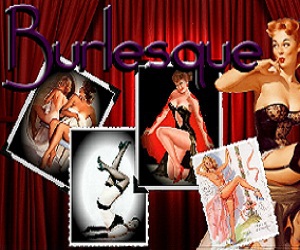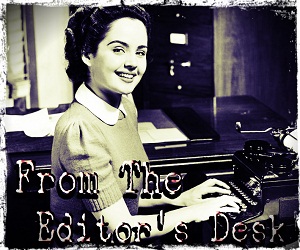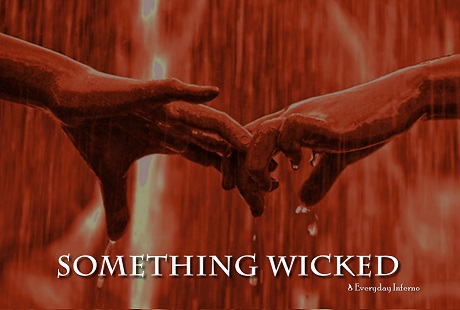Anaïs Koivisto’s Something Wicked, produced by the Everyday Inferno Theatre Company as part of this year’s Frigid New York Festival, consists almost entirely of original lines from Shakespeare‘s Macbeth, cropped and re-arranged in deconstructed collage form to explore, in a very modern way, the character and motivations of its notorious anti-heroine, Lady Macbeth. Academically of course, rivers of ink and storms of hot air have already been unleashed in this cause, so Koivisto’s contribution, for all its formal expressiveness and vibrancy, can only hope to stand some ground in an already crowded field. The alignment of character with fate is at the core of classical conceptions of tragedy but, however undeniably effective it is in art, it rankles with contemporary notions of personality development and redemption. Every generation has to find something of worth in the cultural inheritance of the previous in order to sustain an interest. Perhaps this is why the great villains of literature and history continue to demand our attention; we need to understand in a contemporary light what precisely made them tick.
Something Wicked commences at the instance of Lady Macbeth’s death. In the original play this momentous act occurs off stage and is merely a matter of report passed along to an already besieged and desperate Macbeth. Whatever the unsettling impact this unseen demise works on the imagination, for Koivisto it is an unsatisfactory way of finishing with the Lady. And so the action commences from this point and revolves entirely around the character, as she wakes to find herself in some otherworld, visited by the three Weird Sisters, who encircle her like tormenting Furies, recounting her deeds and conjuring scenes from her past. A weakened, bewildered soul, she observes her former steely self, black-eyed with murderous ambition, bloodthirsty in her speech, relentless in her provocation of her husband, and seems appalled. The original character’s abrupt shift from extreme ruthlessness to guilt-laden mental collapse is one of those undying academic topics of debate, but here Koivisto is unabashedly attempting to recast her in a more sympathetic light.
For the purpose the author has devised an ingenious re-ordering of the original lines, recited in over-lapping, echoing delivery by actors representing both the primary figures in the action, and the Lady herself (there are up to three separate Lady Macbeths on stage at any given time). Dark as it is, Macbeth is arguably one the Bard’s most linguistically rich poetic concoctions and Koivisto’s ear is sensitive to the meter and the music as she arranges one speech followed or over-taken by another. Music and movement seem close to the heart of this production. There is a sense that Koivisto, directing as well as adapting, is getting her actors’ movements to echo the rhythm of the line delivery, as if they are engaged in a formal dance of some complexity. This could be worked on to tighten up composition and co-ordination, but on a blank stage, with just rudimentary flat backdrops, it is a wonderful thing to watch when it flows.
A rich sense of theatricality is at play and Koivisto employs a bold pallet of effects. At one instant of heated drama the scene suddenly shifts from the Macbeth story to present four seated academic types all intoning opposing notions of just why Lady Macbeth behaves the way she does. It is a welcome eruption of comedy in an otherwise charged account, and the actors don’t miss a beat in the transition. Musical performances too are used to temper proceedings, but whilst they have a lyrical appeal, and one serves to present us with the strange sight of the thane and his wife engaged in a tango, they could be enfolded more smoothly into the action to prevent a drop in pace. The musicianship feels rather basic. In contrast to the production’s formal boldness, the visual style is minimal, but might have benefitted from a fresher approach. The preponderant insistence on black and red feels well worn, if not traditional. The actors are all on point and sound conversant with the Shakespearean language, but there are some moments of under projection, even in such a small auditorium.
“What’s done cannot be undone” is one of the lines frequently repeated here. It seems peculiarly relevant for Koivisto, as to whether she can successfully reveal a new part of her doomed, age old subject. She certainly succeeds in enhancing the tragic aura surrounding the Lady, and if tragedy, finally, is that which can ennoble humanity, then that’s saying much in regard to a figure most usually condemned to being one of theatre’s most notorious villainesses. Villainesses of course have always proven fascinating, and this original experiment in theatre proves no less so.
~~~
Something Wicked
Company: Anais Koivisto & Everyday Inferno Theatre Co.
Directed by: Anais Koivisto
Remaining Performance:
Feb 25, 8:40PM
Mar 01, 2:05PM
Mar 08, 8:25PM
Click HERE for tickets
Running time: 1 h 0 min
Price: $14.00 – $16.00
Seating: General Admission
The Kraine Theater
85 E. 4th Street
New York , New York 10003
2nd and 3rd Ave
Horse Trade Theater Group will present the 8th Annual FRIGID New York Festival at The Kraine Theater (85 East 4th Street between 2nd Avenue and Bowery) and UNDER St. Marks (94 St. Marks Place between 1st Avenue and Avenue A) February 19-March 9. Tickets are available for purchase in advance at www.FRIGIDnewyork.info or by calling 212-868-4444 212-868-4444.
212-868-4444.








{ 0 comments… add one now }